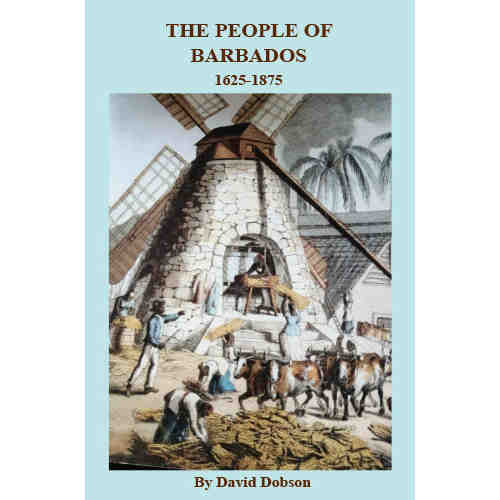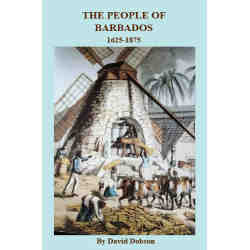Barbados is the most easterly of the many islands of the Caribbean. Captain John Powell claimed Barbados for the Crown of England in 1625, and two years later the first shipload of settlers arrived from England. The island was ideal for the production of tobacco, sugar, and cotton; consequently, entrepreneurs soon arrived from England aiming to produce those crops and market them in England and, to some extent, in Europe. These planters and merchants brought with them skilled artisans, many of whom arrived as indentured servants, and–to a lesser extent–rebels and criminals shipped in chains to be sold there. White Europeans were unwilling to perform hard labor in tropical plantations, and before long slaves were brought from Africa.
Most of the white population came from England and Wales, with a minority from Ireland and Scotland. [NB: I have treated the Scots in my book Barbados and Scotland, Links 1627-1877, Baltimore, 2005]. There was also a considerable number of Sephardic Jews there, who had been encouraged by Oliver Cromwell to settle in Barbados to avoid persecution of the Spanish Inquisition. By the early 18th century, with the productive lands fully allocated and a growing population, a significant migration occurred from Barbados to the Leeward Islands, the Windward Islands, Jamaica, and as far north as South Carolina, where the plantation economies were rapidly expanding. Planters, indentured servants, merchants, and African slaves thus became two-stage migrants within the Americas. Slavery was abolished in Barbados in 1834, though the island remained a British colony until 1966, when it became fully independent.
This book is based on research into manuscript and published sources, mainly located in Great Britain but also in Barbados. Dr. Dobson identifies numerous non-Scottish inhabitants, and for each we are given a full name, date, and the source. In many instances we also learn of the individual’s religious affiliation, vessel, relatives, or other particulars. The book commences with a helpful historical introduction and concludes with a list of primary and secondary sources cited in the work.


